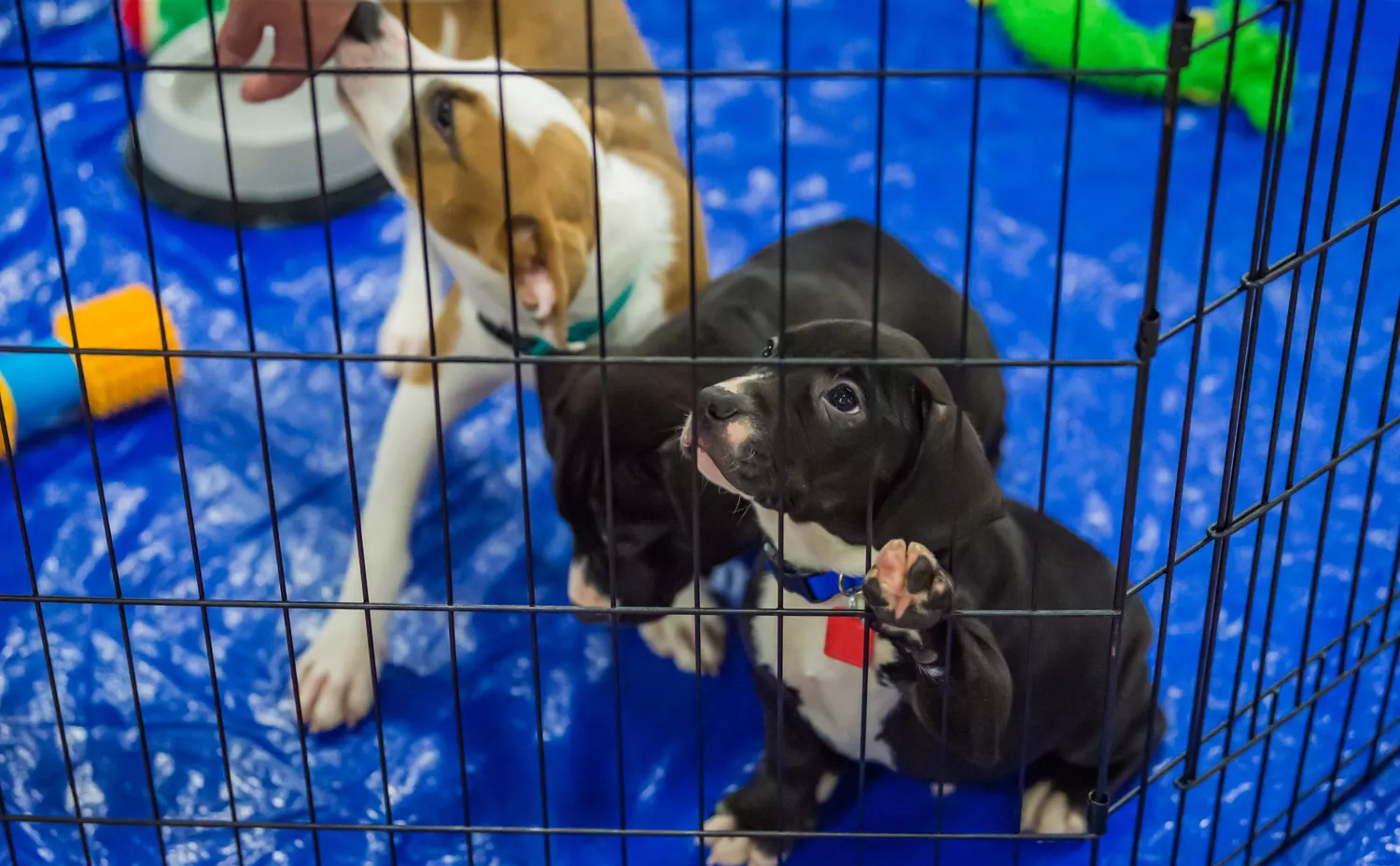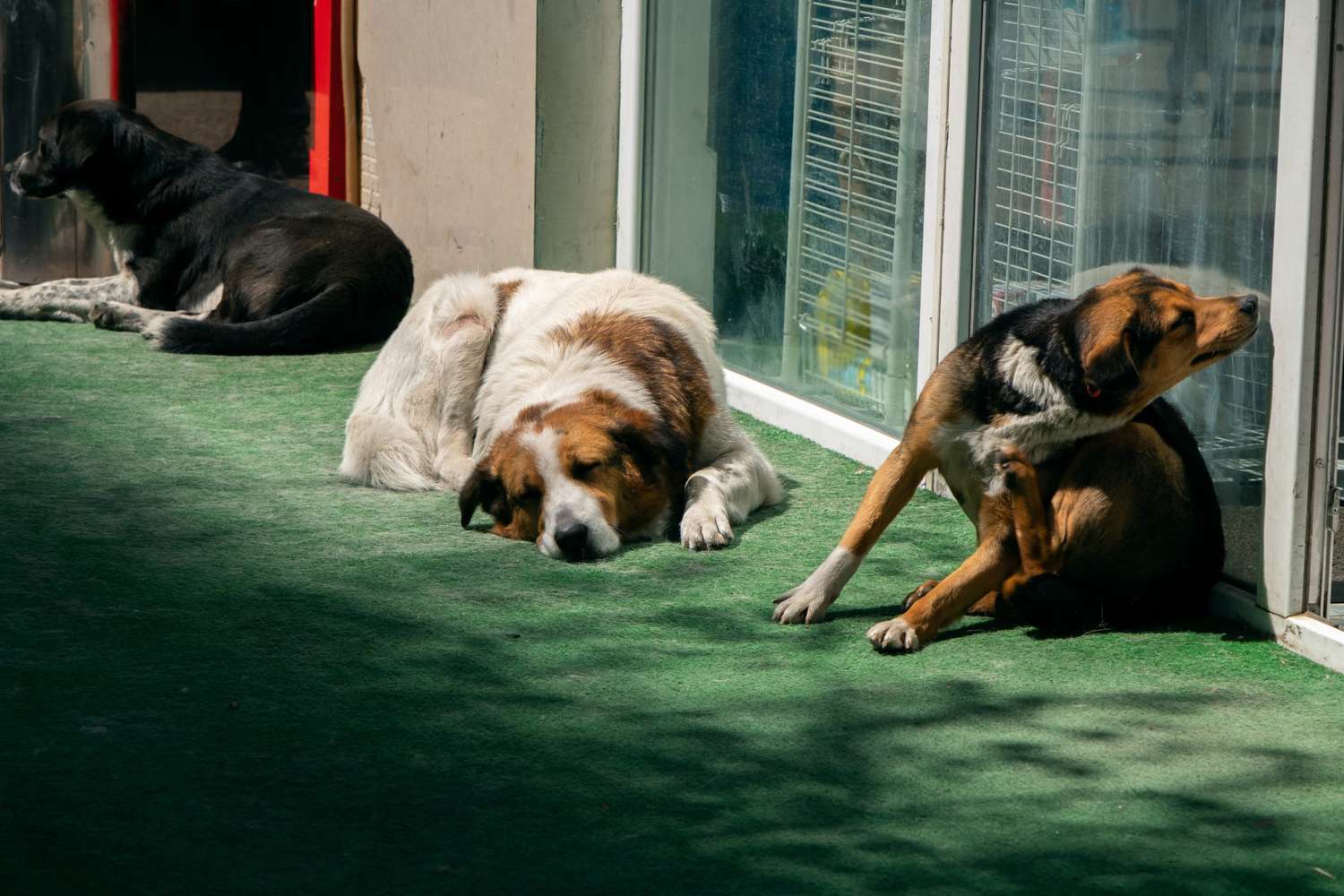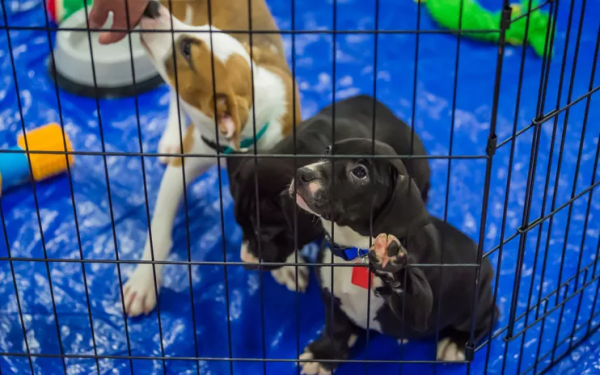Heather McDowell is of course trying to generate adoption interest for the dogs stuck at her South Carolina shelter. But she’s also hoping Massachusetts adopters step up.
Such is life these days in the inter-state animal-welfare network. McDowell’s Berkeley County Animal Center usually transfers 15–20 dogs per month to MSPCA-Angell, opening up valuable space at the municipal shelter just north of Charleston, S.C.
But shelters across the country are taking in more and more dogs, putting this kind of relocation program in danger. If MSPCA can’t get its own dogs out the door, it can’t take relocated animals.
“They are starting to fill up, so we are very concerned about not having them to go to,” McDowell, the animal center’s community services director, tells Daily Paws.

As of last week, the Berkeley County shelter was full, housing about 80 dogs with roughly 100 more in foster homes. Meanwhile, McDowell says 15–30 animals are arriving daily. Hers is the only county-run, open-admission shelter in the populous Tri-County area, so many people turn to the agency with their animals.
Thankfully, they’re planning to send some dogs and cats up the road to Massachusetts toward the end of the month. The partnership shows how far-reaching dog adoptions can be: Taking a dog home in Boston could save a dog hundreds of miles away.
Berkeley County is one of many shelters who send animals to MSCPA, which runs the largest relocation program in New England, according to Michael Keiley, MSPCA’s director of adoption centers and programs. It takes in roughly 4,500 animals yearly from 18 states, the highest numbers from Texas and South Carolina.
These days, however, MSPCA is facing a “sudden downturn in adoption interest” as local surrenders also tick upward—a 10 percent increase so far in 2023, Keiley says. While the shelters aren’t overrun, dogs are staying in MSPCA’s four adoption centers for longer than they had the past two years.
“That’s creating a capacity issue within our shelters, and as a result, it’s putting us in a position that we have to figure out how to resolve the capacity because there are so many relocations, so many other [struggling] shelters relying on us,” Keiley says.
An Alabama agency, for instance, was able to send almost 30 dogs in early June, including a Chihuahua mix named Nova who’s struggling with a congenital leg deformity. MSPCA has the housing and veterinary resources to hopefully fix his leg and find him a new home.
“Many, many shelters can’t even get the basics in a timely manner, so it’s slowing the whole system up,” Keiley says.
Some other destination shelters have already had to cancel or reduce transfers, he says. Shelter Animals Count, which keeps a nationwide database of shelter-animal outcomes, reports that overall transfers—both outgoing and incoming—have declined. Fifteen percent of animals transferred in the first quarter of 2021, but only 12 percent moved in the first three months of this year.
That leaves originating shelters to care for more animals, who in some cases are at risk of euthanasia.
That’s why MSPCA has set an ambitious goal: to find homes for 2,500 dogs this summer through a series of adoption events. Keiley says the agency will waive and reduce fees at adoption events. MSPCA has also reconstituted its adoption programming team after a decade dormant.
“We need our community now more than ever,” he says.
McDowell, to some extent, needs that community, too. Once a month, MSPCA staff—in Berkeley County to administer the animal center’s TNR program—will scope out animals they think will be attractive to adopters in New England.
“We try to get those animals they think are highly adoptable up their way,” McDowell says.
But even with the “amazing relationship” with MSPCA, she foresees a tough summer ahead. Berkeley County’s euthanasia rate will likely rise if they can’t get the dogs into rescues, foster homes, and forever homes.
Adopters and volunteers can help. Then she needs dog owners to spay and neuter their pups. Microchip them, too.
“All these animals didn’t make this choice to be homeless,” she says. “Unfortunately, people have allowed that to happen, so we need to work together to fix the issue.”



